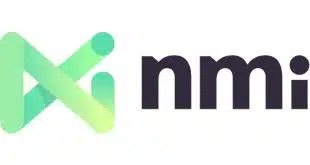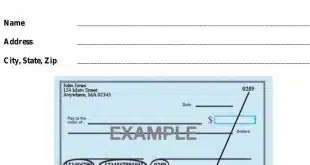This may be the year contactless payment gained a foothold among banks and merchants, but another technology?biometrically secured point-of-sale payments?is starting to gain momentum, as well. BioPay LLC, a provider of the technology for both POS transactions and payroll check-cashing, says it expects in 2006 to double, and possibly triple, the roster of 1,600 merchant locations now using its system for both applications. Payments, the company says, is driving the growth. “For our internal planning, we're seeing future growth coming from [in-lane] payments,” says Donita Prakash, vice president of marketing for the Herndon, Va.-based company. “Payroll check-cashing is not the hockey stick payments will be.” BioPay is targeting a wide array of merchants for its service, which allows consumers to pay with the touch of a finger on a fingerprint scanner. Using a search code, usually a phone number, BioPay links the scan to a template it stored when the customer enrolled in its service. The template in turn is linked to routing and transit and other checking-account data necessary to debit and clear funds electronically through the automated clearing house. The company is courting grocery and convenience stores, but also has its eye on general retailers, quick-serve outlets, even car washes, says Prakash, a former America Online Inc. and Wells Fargo & Co. executive. “We're in discussions with large retailers that could bring us thousands of locations [next year],” she says, adding BioPay is also planning to use independent sales organizations and other resellers to help it reach smaller, independent merchants. The latest group of merchants to adopt BioPay are 18 grocery stores, including one in Missouri, Mid-Towne IGA, and 17 others across three brands in California, Arteaga's Starlite Supermarket (seven stores), El Rancho Alegre (one), and Mi Pueblo (10). The California locations had already been using BioPay's payroll-check-cashing product, and added in-lane payment. The IGA store adopted both at the same time. Lowe's Food Stores Inc., a chain of more than 100 grocery stores mostly in North Carolina, is beginning to roll out the system and should have it completed chainwide by the end of June, Prakash says. BioPay refuses to break out its store count by number using the system for payments and those using it to secure payroll-check cashing (Bi-Lo LLC and Marsh Supermarkets Inc. are among major clients for payroll-check cashing). It says it has so far enrolled 2 million customers overall and has processed more than 17 million transactions since its startup in 1999. Customers who enroll in the payment system can use it to make in-lane payments in any store supporting BioPay for payment. Merchants want to use the system not only to speed up transactions, but to cut acceptance cost as well, Prakash says, at a time when merchants are increasingly riled about credit and debit card interchange fees. For this reason, no store adopting the service for payments has shown interest in linking transactions to credit or debit cards, opting for ACH payments only, even though the product offers an electronic wallet that could link payments to any number of accounts held by a customer. That leaves checks. A paper check transaction costs these merchants on average 35 cents, according to BioPay estimates, whereas a BioPay transaction costs anywhere from 15 to 30 cents, depending on volume and average ticket size. The IGA store, indeed, plans to market BioPay to its customers as a check-replacement system. “It's 'here's how you write checks now, it's called BioPay, you don't have to bring your checkbook any more,'” says Prakash. Most merchants BioPay targets accept credit cards, but these are especially expensive with biometric payment systems, Prakash says, because card networks hit the merchant with higher card-not-present interchange rates. And the company estimates a debit card payment, with costs for PIN and signature blended, averages 80 cents. In both cases, the merchant would have to pay a fee to BioPay for authentication, on top of the card fees. “They're clearly choosing us because they're looking to lower their payment costs, and if they had a[n electronic] wallet, it would raise their payment costs,” says Prakash. BioPay competes directly with Pay By Touch Solutions, a San Francisco company with a similar system that is also gaining marketplace momentum and is also planning to use an independent reseller strategy to reach small merchants now that it has acquired CardSystems Solutions Inc., the Atlanta-based merchant processor (Digital Transactions News, Oct. 18). Earlier this year, Pay By Touch sued BioPay for patent infringement after BioPay, which denies it is infringing Pay By Touch's patents, asked a federal court for a declaratory judgment to that effect (Digital Transactions News, Feb. 1). A court date for that case has been set for January 2007, Prakash says. BioPay was awarded a patent a few weeks ago covering its system for enrolling customers in its check-cashing service; it has another 40 applications pending. Pay By Touch holds more than 24 patents.
Check Also
Nacha’s Top 50 Originators And Receivers Account for 94% of Payments Volume
The big automated clearing house network Nacha says the volume of ACH payments made at …




